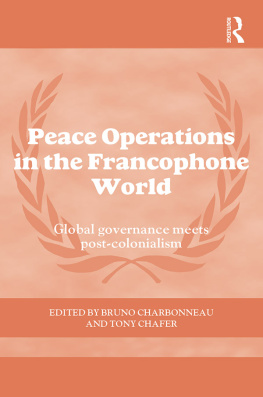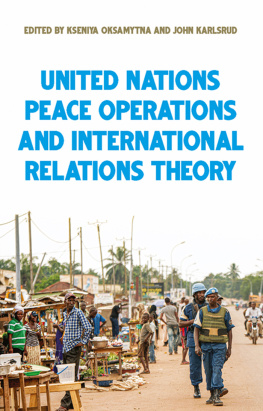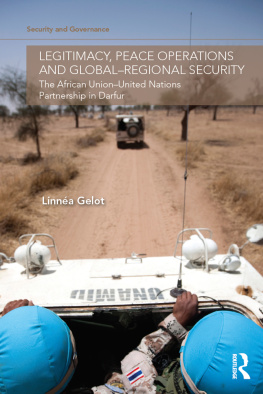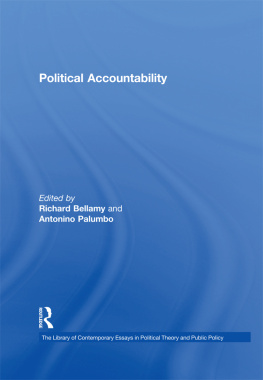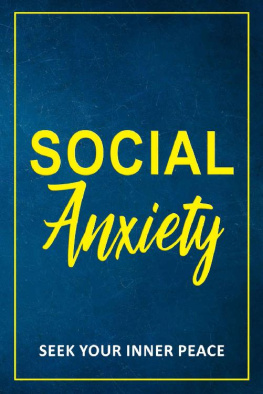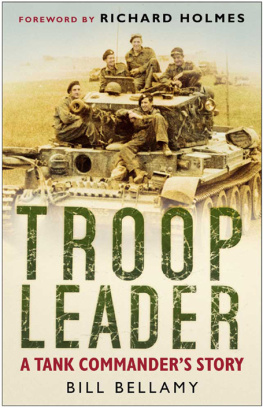Peace Operations and Global Order
Peace Operations and Global Order investigates the changing role of peacekeeping and the competing perspectives on what that role ought to be. We consider the change from the Westphalian system to the Post-Westphalian international society. It begins by addressing broad issues connected with the transition from a Westphalian to a Post-Westphalian international society. For example the ethical and legal dilemmas provoked by armed intervention, and the alternative ways of conceptualising the role that peacekeeping plays. We critically chart the development of traditional peacekeeping before outlining how the role of force in peacekeeping operations has changed and the close links between peacekeeping, conflict prevention and conflict resolution. The final part of the volume focuses specifically on globalization and the effects that this has had on peacekeeping practices. In particular, it focuses on the changing conflict environment, the growing tendency towards subcontracting peacekeeping duties, and the development of regional peacekeeping capabilities. This is a Special Issue of International Peacekeeping.
Alex J. Bellamy is Lecturer in Peace and Conflict Studies at the University of Queensland.
Paul Williams is Lecturer in Security Studies at the University of Birmingham.
Peace Operations and Global Order
Alex J. Bellamy & Paul Williams
First published 2005 by Frank Cass, an imprint of Taylor & Francis
2 Park Square, Milton Park, Abingdon, Oxon, OX14 4RN
Simultaneously published in the USA and Canada
by Routledge
270 Madison Ave, New York, NY 10016
Routledge is an imprint of the Taylor & Francis Group
2005 Alex J. Bellamy & Paul Williams
All rights reserved. No part of this book may be reprinted or reproduced or utilised in any form or by any electronic, mechanical, or other means, now known or hereafter invented, including photocopying and recording, or in any information storage or retrieval system, without permission in writing from the publishers.
The publisher makes no representation, express or implied, with regard to the accuracy of the information contained in this book and cannot accept any legal responsibility or liability for any errors or omissions that may be made.
British Library Cataloguing in Publication Data
A catalogue record for this book is available from the British Library
Library of Congress Cataloging in Publication Data
ISBN 0-714-65595-3
Contents
Alex J. Bellamy and Paul Williams |
Alex J. Bellamy |
Michael Pugh |
The Responsibility to Protect?
Imposing the Liberal Peace | David Chandler |
Oliver P. Richmond |
Paul Williams |
Tarja Vyrynen |
Roland Bleiker |
Eli Stamnes |
Alex J. Bellamy and Paul Williams |
Notes on Contributors
Alex J. Bellamy is a Lecturer in Peace and Conflict Studies at the University of Queensland in Australia. His publications include Kosovo and International Society (Palgrave, 2002) and The Formation of Croatian National Identity in the 1990s (Manchester University Press, 2003). He is currently working on peacekeeping and the ethics and laws of war and has recently completed Understanding Peacekeeping (Polity, 2004) with Paul Williams and Stuart Griffin. He is also writing a book on Just Wars for Polity Press.
Paul Williams is a Lecturer in the Department of Political Science and International Studies at the University of Birmingham. He is currently writing a book on British foreign policy under the Blair government and is co-author of Understanding Peacekeeping (Polity Press, 2004) with Alex J. Bellamy and Stuart Griffin.
Michael Pugh is Director of the Plymouth International Studies Centre, University of Plymouth, and editor of International Peacekeeping and the Cass book series on Peacekeeping. He is an author of War Economies in Their Regional Context: The Challenge of Transformation (Lynne Rienner, 2003) with Neil Cooper and Jonathan Goodhand. He edited Regeneration of War-torn Societies (Macmillan, 2000) and, with Waheguru Pal Singh Sidu, The UN and Regional Security: Europe and Beyond (Lynne Rienner, 2003).
David Chandler is Senior Lecturer in International Relations, Centre for the Study of Democracy, University of Westminster. His publications include Bosnia: Faking Democracy after Dayton (Pluto Press, 1999, 2000); From Kosovo to Kabul: Human Rights and International Intervention (Pluto Press, 2002); and (editor) Rethinking Human Rights: Critical Approaches to International Politics (Palgrave-Macmillan, 2002).
Oliver Richmond is a Lecturer in the Department of International Relations, University of St Andrews. His publications include Maintaining Order, Making Peace (Palgrave, 2002). He can be contacted on opr@st-andrews.ac.uk.
Tarja Vyrynen is Research Director at Tampere Peace Research Institute, Finland. Her areas of interest include conflict theory, philosophy of science and gender issues, and her publications include Culture and International Conflict Resolution (Manchester University Press, 2000).
Roland Bleiker is Reader in Peace and Conflict Studies at the University of Queensland in Australia and currently a Humboldt Fellow at the Institut fr Sozialwissenschaften, Humboldt Universitt zu Berlin. From 1986 to 1988 he was in Panmunjom as Chief of Office of the Swiss Delegation to the Neutral Nations Supervisory Commission. He has since frequently returned to Korea, including for a year as visiting professor to Pusan National University. He is currently working on a book about Rethinking Korean Security. Recent publications include a monograph on Popular Dissent, Human Agency and Global Politics (CUP, 2000).
Eli Stamnes works as a researcher at the Norwegian Institute of International Affairs (NUPI) and shares her time between Oslo and Aberystwyth, where she was awarded her PhD in 2002 with a doctoral thesis investigating the United Nations preventive deployment in Macedonia from a Critical Security Studies (CSS) perspective. She is currently writing a book on the same topic as well as editing a book, Peace Support Operations: a Nordic Perspective.
Alex J. Bellamy and Paul Williams
In his address to the UN General Assembly in September 1999, Kofi Annan insisted that state sovereignty is being redefined by the forces of globalisation and international cooperation. These developments demand of us a willingness to think anew about how the United Nations responds to the political, human rights and humanitarian crises affecting so much of the world. 1 International responses to these challenges have varied. The Canadian government, for example, has spoken at length about human security and supported an international commission to develop a more reconciliatory approach to the relationship between sovereignty and human rights. 2 In Britain, the then Foreign Secretary, Robin Cook, proposed a set of criteria to guide future humanitarian interventions. 3 The Secretary-General himself commissioned the so-called Brahimi Report. This was to conduct a thorough investigation of past and current peace operations, question the conceptual assumptions behind them and suggest how the UN Secretariat and its decision-making bodies might improve their responses to political and human rights crises.





